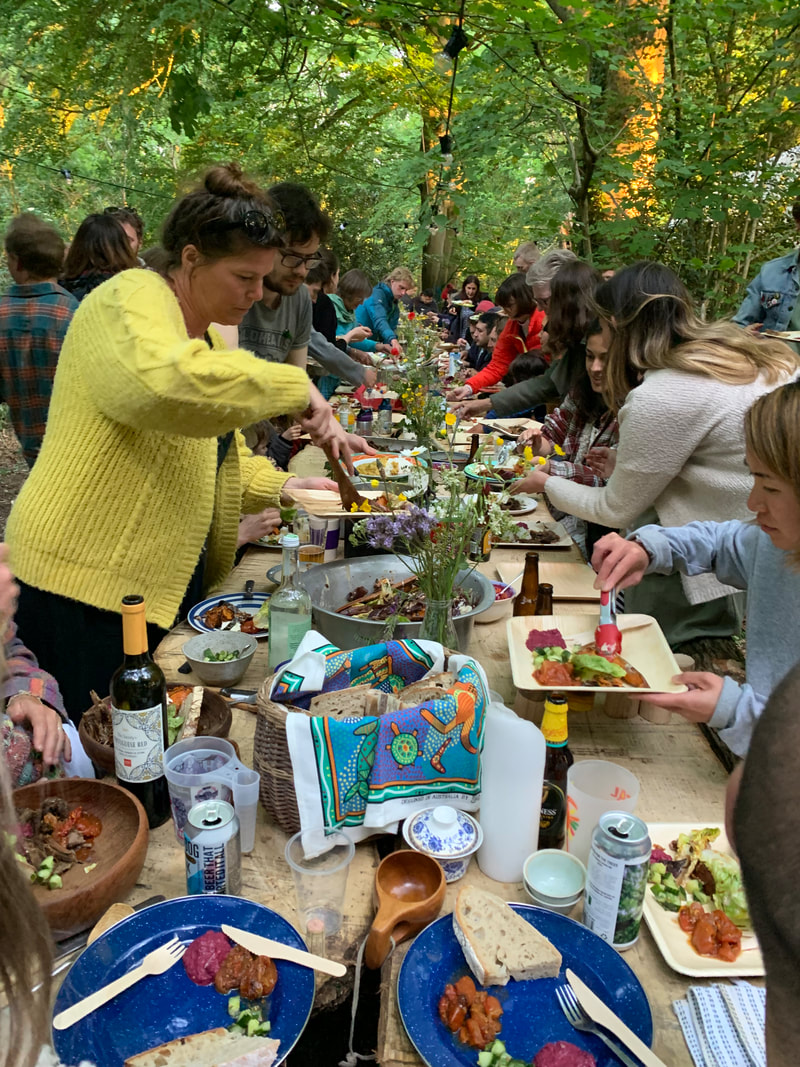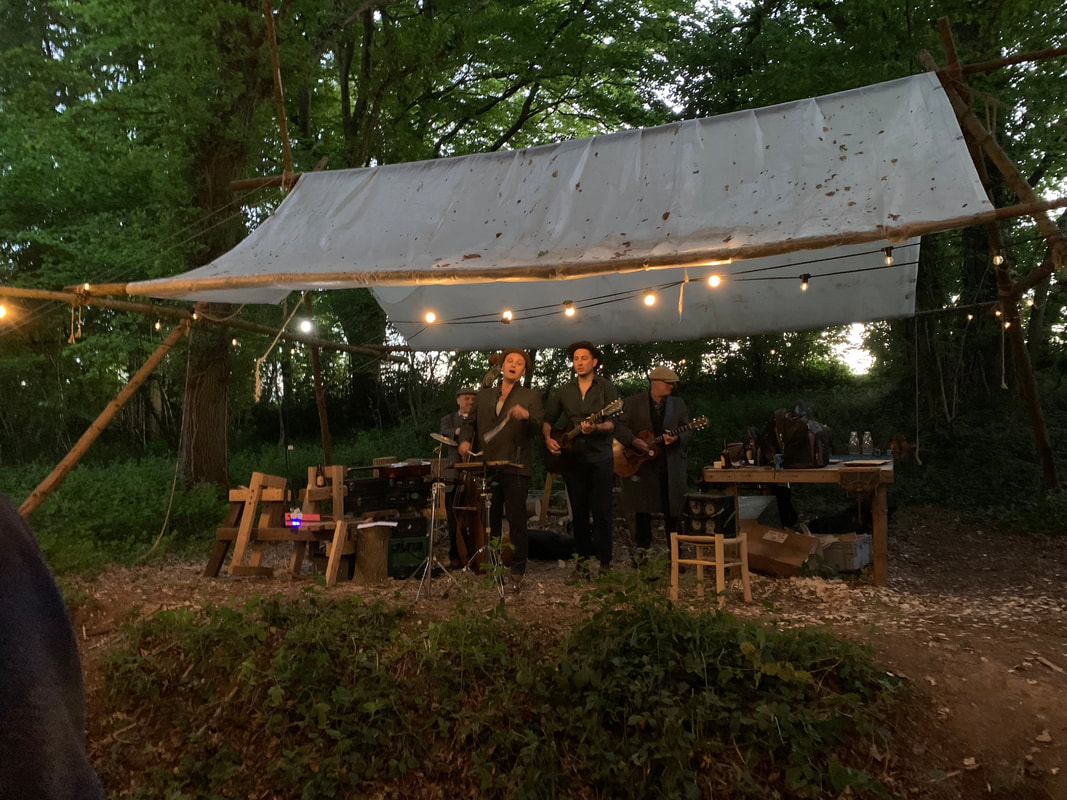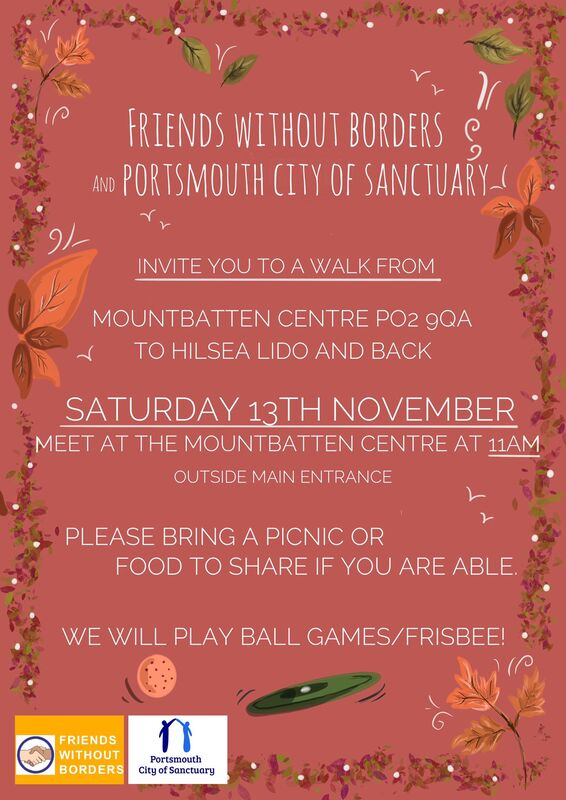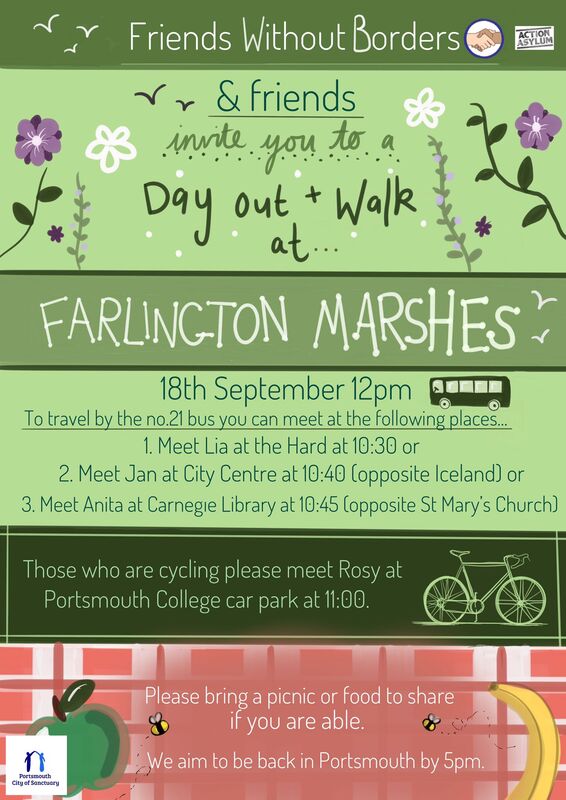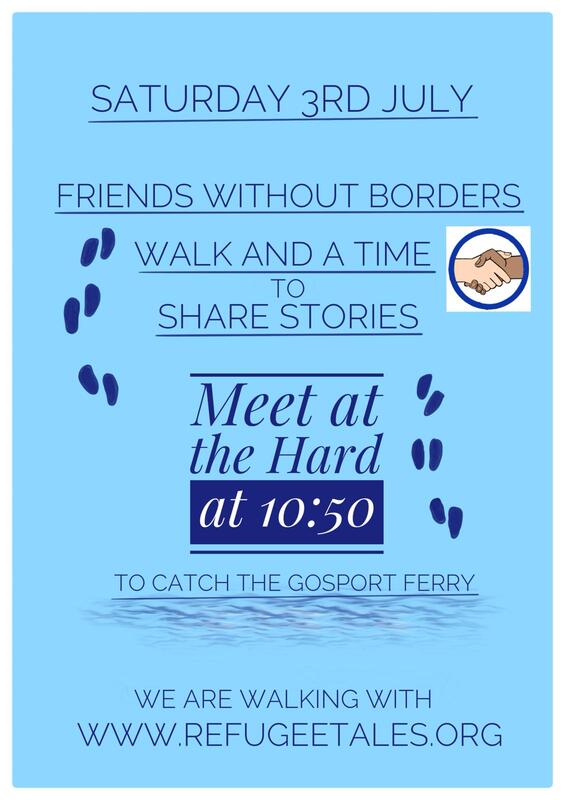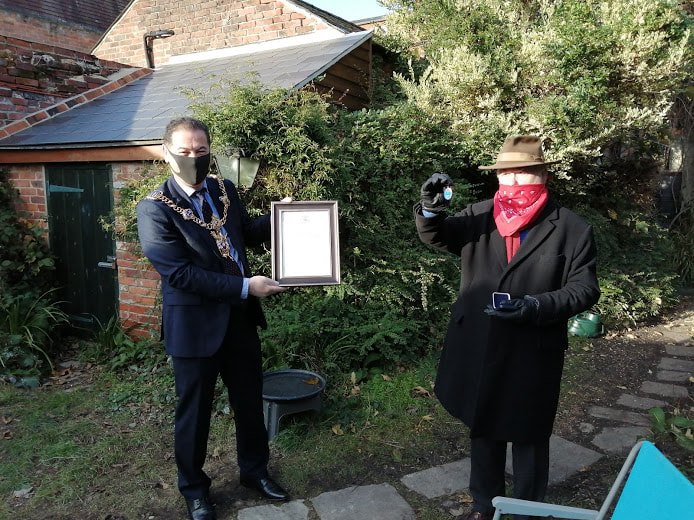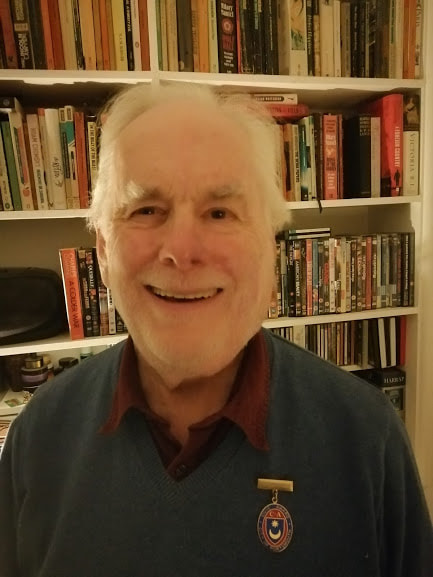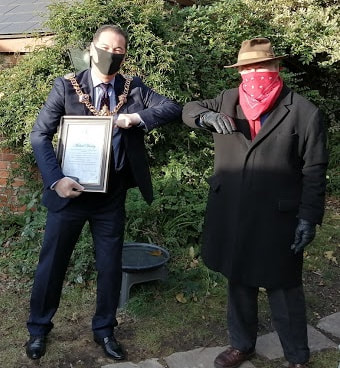|
Dear Friends,
It is with sadness that we inform you that Michael Woolley, our colleague, friend and honorary chairperson passed away, at home on Sunday 3rd October at 6pm. Coleen writes: "Michael was a champion of our clients, volunteers and supporters. His passion and desire to improve the lives of clients never wavered and my life, and those of many, is richer for having known you. Never to be forgotten." For those of you who knew Michael, thank you for all the love and support you have extended to him and to Friends Without Borders over the years. We will mark his passing at the Drop In on Thursday with a few moments of silence (all are welcome to join us) and once we have the opportunity to discuss between ourselves and with Michael's family, we would like to find a more permanent way to remember him. For those of you who have not met Michael, or for those who wish to feel close to him at this time, you can read a tribute to him by Coleen in our most recent Annual Report here. With all our love, Bryony, Veronica and Coleen, on behalf of the Trustees Friends Without Borders Following the success of our walk in July. Trustee Lia worked with our volunteers and friends to plan a walk at Farlington Marshes.... for those of you know the area well, this wasn't straightforward - how to use public transport, roundabout challenges (particularly on a bicycle), how long the walk would take. But the planning paid off!
The walk took place from 12 noon on Saturday 18th September 2021. People could join the walk by either meeting Lia at the Hard at 10.30, Jan at the city centre at 10.40, Anita at Carnegie Library at 10.45, Rosy at Portsmouth College car park at 11am with their bikes and to cycle to meet us or to meet us at Farlington Marshes at 12 noon. Amazingly it worked and we all met up and the weather was extremely kind, warm and not too windy. There were twenty nine of us altogether. Twenty three adults and six children. We stopped for our lunch at about one and having asked people to bring a picnic or food to share if able, there was a wonderful variety, home cooked stuffed vine leaves, cakes, sandwiches, fruit and raw vegetables, there was enough for everyone including those who hadn’t brought any. And there wasn’t too much - most of the food was eaten. There were spare binoculars, we were looking like regular ornithologists with the help of Peter, one of our volunteers. We saw a Little Egret, a Common Moorhen, a Coot, a Godwit, Seagull and Starlings and more. We talked, chatted, shared stories strengthened friendships and made new friends. News and information of of events and opportunities were shared. It was late September and there were masses of small very tasty blackberries. The containers for lunch went home full of blackberries. We hope to plan another walk in November. We hope that you'll join us! Thank you to all our friends who helped to organise this, including Anita from Action Asylum (supported by Portsmouth City of Sanctuary). On Saturday 3rd July we will walk together and share tales as part of Refugee Tales Walk of 2021.
The walk will take us through the militarised landscape in Gosport, past the site of the prison that was used most recently as an immigration and removal centre. We will take a route that passes the various military bases and the hospital, then along the coastal wall up to Fort Monckton, before heading back up to the Gosport Ferry (about 2hrs of walking, Hard to Hard & time for lunch). The idea behind the walk is to think about the relationship between the everyday environment, militarism and forced migration. Together we will celebrate our global community and take steps towards a future without immigration detention. If you would like to join us, meet at the Hard 10:50 with money for the Gosport Ferry and some lunch. If necessary, we will split into groups of 30. If you can let us know in advance that you're joining us, that would be great - email [email protected] #RTStepChange https://www.refugeetales.org/the-walk-of-2021 Head Girls Team at Portsmouth High School announce their support for Friends Without Borders11/6/2021
Portsmouth High School’s Head Girl team were delighted to announce that they are supporting Friends Without Borders, as their Sixth Form charity for the next academic year. ‘We chose Friends Without Borders because the work they do is so important to give asylum seekers and refugees a place to go to in order to access help locally,’ said Head Girl, Annalee Macfarlane, 17. ‘We feel the charity is making a real and true difference to people’s lives and we wanted to help contribute to this significant cause.’ Dr Bryony Whitmarsh, Co-Chair of the Charity, talked to the whole school in an assembly: ‘Friends Without Borders is extremely proud and grateful to have been chosen as Portsmouth High School’s Sixth Form charity. In fundraising for us and for donations of essential products, pupils will be directly supporting refugees and asylum seekers at one of the most critical times in their lives and helping us to continue our charitable services in very challenging financial times.’ The Head Girl team will spearhead fundraising activities throughout the coming year to generate money and raise awareness of the charity. They will also organise collections of essential products such as toiletries for those able to access the charity. Portsmouth High School’s Charity Week will take place in November. It has been running for almost 30 years and is always organised entirely by the Sixth Form. The week is made up of talent shows, live music events, an annual netball match versus boys from Portsmouth Grammar School and other events. It culminates in a two night Fashion Show where the Sixth Form use business acumen and entrepreneurial skills to negotiate with local shops and liaise with local businesses to put on the show. We're really looking forward to working with the girls over the next year, and will be delighted to welcome them to participate in a range of activities, as they support us to raise awareness and well-needed funds. For the full press release, please see: https://www.portsmouthhigh.co.uk/news/2021/06/head-girls-announce-support-for-portsmouth-based-charity-friends-without-borders We could not be more proud to share that today, Michael Woolley was presented the Portsmouth City Council Civic Award:
"in recognition of all you have done for immigration detainees, refugees and asylum seekers over the last twenty years and in recognition of your selfless, steadfast and outstanding commitment and dedication to helping those in need of legal, social and financial assistance. For bringing warmth, friendship and justice to those who find themselves in hardship and adversity, making a real and true difference to people's lives." The award was presented to Michael by the Right Worshipful, the Lord Mayor of Portsmouth, Cllr Rob Wood and signed by the Lord Mayor and the Chief Executive of the Council in the form of a certificate and a medal. We think it is justly deserved to recognise Michael’s contribution, over two decades of support for asylum seekers and refugees in Portsmouth. Friends Without Borders has been entirely volunteer run since 2015 and Michael has built a strong community of volunteers, all working together to support those seeking asylum in Portsmouth. Well done Michael, you're truly amazing! The full citation read: "Michael Woolley has been involved with Friends Without Borders and its predecessor organisation The Haslar Visitors' Group since 1998. He served as Co-ordinator 2001-09, then became a Trustee while serving as Mayor of Chichester. He became Chairman and Co-ordinator when the organisation became exclusively Volunteer in 2015 - he has spearheaded the recruitment and training of several dozen volunteers who run [in normal times] Drop Ins twice a week for Asylum Seekers in Portsmouth. Donation income has risen to £50,000 a year under his leadership and locally based Refugees are provided with legal and other needed advice, weekly payments for subsistence until they are granted state benefits, and many other means of support. Michael and the organisation that he has headed up continue to make a significant difference to refugees until their residency be settled - his contribution has been outstanding." We have been able to buy computers for the children of asylum-seeking families with thanks to a generous grant of £6,000 from the Hampshire and Isle of Wight Community Foundation (HiWCF), who have been working with the National Emergencies Trust to distribute emergency funds to local charities and voluntary groups.
These children are less likely to have access to computers at home, and this risked impacting their educational development. Within two and half weeks of receiving the grant, we have been able to distribute laptops to 18 children, with 5 more on order. This was quite an exercise, not least because there are order limits in place, due to the demand on laptops at the moment. We are delighted to have been able to made a difference to these children by ensuring they have the equipment needed to participate fully in their education. Our twice-a-week Drop in closed on Monday 16th March. We pay just over thirty of our destitute clients during the morning sessions – some for fares and some as a living allowance. On Monday 16th we paid two weeks money to each client - £1,300 in all. This was a good move as it meant they had something to live on while we set up a new system.
The Drop in would normally have been open the following Thursday (19th) - but of course it was closed. Before the day came we contacted all our regular Thursday payees by text and phone call and managed to get out their payments. We then had a relatively relaxed few days to contact our Monday payees before 30th when they were next due their money and are now distributing the payments largely by BACS. So one thing we are doing is keeping up payments to the destitute. It is a bit of a struggle but the need is real, for example, a Syrian family of five who were sent from London, after the lockdown, by the Home Office. They had been allocated a furnished house but their Aspen (payment) card didn't work when they arrived or for a week after. And though the house was furnished they said they felt very cold and modestly requested a blanket each. The money problem was alleviated by us giving them £50 cash on two occasions - delivered by a volunteer. Thank you. For the blankets I put out an appeal to our WhatsApp group and was almost instantly contacted by another volunteer who took round two large blankets, two small blankets and a sleeping bag. Heartwarming. Another challenge is isolation, which bears down on clients and volunteers alike. So we have begun to ask our wonderful volunteers to take on a bit of telephone befriending. They have all taken on two clients (except for one eager lady who has got five!) The clients of course have got themselves out of war-zones, across the Mediterranean, across Europe and through the Calais Jungle. They are a robust lot - but we thought a friendly phone call might be welcome. It is nice to know someone is thinking of you. Meanwhile we are concerned about how the crisis will affect our fund-raising. Some of our costs have gone down – we no longer have to pay for travel or refreshments, but our donations are likely to go down too – no church collections this month for example. It’s a balancing act and the figures are quite large – we expect to spend over £4,000 this month in grants to the needy. We are hugely grateful to all the supporters who make this work possible - anyone else wanting to help, can donate here. Let us know who you are and we shall say “thank you” but in case you’d rather be anonymous, let me say a sincere thank you right now. The money will go to good use helping some destitute asylum seeker currently having a hard time. Michael Woolley Hello Everyone,
We hope everyone, whether client or volunteer, stays well and keeps safe! Very best wishes Michael |
|
